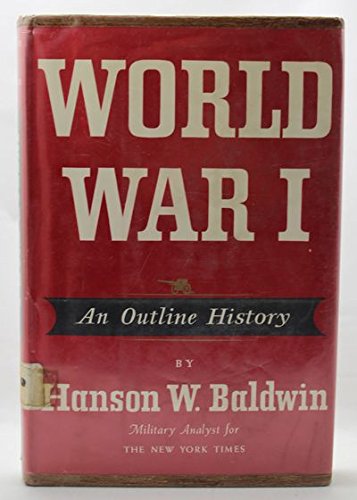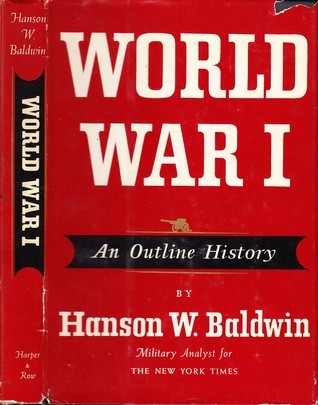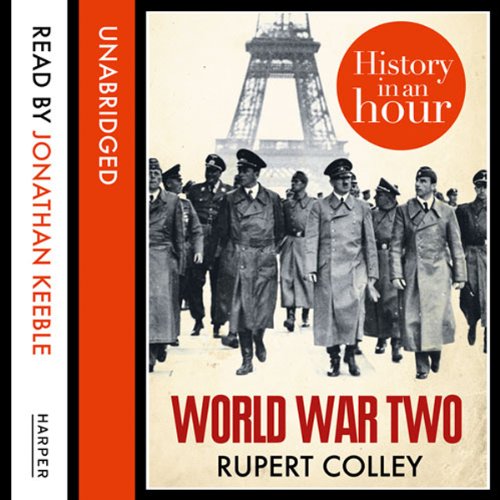World War I An Outline History
World War I, or the Great War, was one of the defining events of the 20th century. It was the first global conflict that involved countries from all over the world. The conflict was fought between two alliances of countries, the Central Powers and the Allies. The war lasted from July 28, 1914, to November 11, 1918, and resulted in the deaths of millions of people. This outline history of World War I provides a general overview of the war, its causes, and its major battles and events. It also discusses the social and political effects of the war, as well as its legacy.
Background to WWI
World War I, also known as the Great War, was a global conflict fought from 1914 to 1918. It was the most devastating war in human history, claiming millions of lives and leaving a lasting legacy in its wake. This article will provide an outline history of the conflict, from its immediate origins to the long-term consequences of the war. It will examine the political, economic, and social tensions that led to the outbreak of war and the various tools of warfare employed by the belligerents. It will also explore the impact of the war on the world and how it shaped the landscape of the 20th century. Finally, this article will consider how the war has been remembered and its legacy for future generations.
Causes of WWI
World War I was a global conflict that lasted from 1914 to 1918. It was one of the deadliest wars in human history, with an estimated 15 million people killed in action. It’s important to understand the causes of WWI in order to gain a better understanding of the conflict and its consequences.
The main cause of WWI was the system of alliances between countries, which created a tinderbox of tension and suspicion in Europe. In the wake of the assassination of Archduke Franz Ferdinand, a number of events escalated tensions between nations and eventually led to the outbreak of war.
In addition to alliances, nationalism played a key role in the conflict. Countries like Germany and Austria-Hungary wanted to expand their territories and strengthen their power. Imperialism was also a factor, as countries competed for resources and land.
The arms race between the countries of Europe in the early 20th century was another factor that contributed to the conflict. As nations built up their arsenals of weapons, they were more willing to go to war with each other.
Ultimately, WWI was caused by a combination of factors, from the system of alliances to the arms race and the competition for resources. All of these factors contributed to the outbreak of war in 1914 and the devastating conflict that followed.
Major Battles of WWI
World War I (1914-1918) was the first major international conflict in the modern world, and its battles reshaped the course of history. The major battles of WWI pitted the Central Powers (Germany, Austria-Hungary, Ottoman Empire, and Bulgaria) against the Allies (United Kingdom, France, Russian Empire, and United States). The war was fought on land, sea, and air, and its battles changed the landscape of Europe and the world forever.
The Battle of Tannenberg, in August 1914, was the first major clash of the war, and it saw Germany successfully defeat the Russian army. The Battle of the Somme, in the summer of 1916, was one of the bloodiest and longest battles of the war, and it resulted in an Allied victory. The Battle of Verdun, in February 1916, was a major German offensive that resulted in a stalemate. The Battle of Passchendaele, in the summer of 1917, was a major Allied offensive against the Germans, and it resulted in heavy casualties on both sides. The Battle of the Marne, in September 1918, was a decisive Allied victory against the Germans, and it marked the beginning of the end of the war.
These major battles of WWI were incredibly costly in terms of lives, resources, and suffering, but they also helped shape the world we live in today. The effects of WWI can still be felt today, and it serves as a reminder of the importance of peace and international cooperation.

Impact of WWI on Society
The First World War (WWI) is considered one of the most devastating wars in modern history. It changed the political, economic and social landscape of the world forever. WWI had a significant impact on global society in numerous ways. Politically, the war led to the collapse of four major empires, and the emergence of several new nation-states in the aftermath. Economically, it was an unprecedentedly expensive conflict, with the cost of the war estimated at over $200 billion. On the social level, WWI saw the end of traditional gender roles as women took on roles traditionally filled by men during the war, and experienced a newfound sense of independence. Furthermore, it saw an unprecedented level of technological advancement, as well as providing a catalyst for the civil rights movement. WWI also left a deep psychological scar on the world, with many countries still dealing with the psychological aftermath of the war. To this day, WWI remains one of the most influential and devastating conflicts in history, with its impact still being felt in many areas of the world.
Legacy of WWI
The legacy of the First World War is far-reaching and complex. 100 years after the conflict, its effects can still be felt in many countries around the world. WWI left a deep imprint on the political, economic, and social landscape of the world.
Politically, WWI saw the fall of four monarchies—the German, Austro-Hungarian, Ottoman, and Russian empires—and the creation of many new sovereign states in their place. This reshaped the map of Europe and the Middle East. Countries such as Jordan, Iraq, and Yugoslavia were created as a result of the war.
WWI also had a profound economic impact. The war imposed a huge financial burden on the nations involved, and the cost of rebuilding was staggering. The Great Depression of the 1930s was, in part, a consequence of the war’s damage to the global economy.
Socially, WWI saw a tremendous transformation in attitudes and values. Military service was no longer restricted to the upper classes, and the idea of a ‘total war’—in which all citizens were expected to contribute—became commonplace. The war also gave rise to new forms of social organization, such as trade unions and veterans’ organizations.
WWI remains a hugely significant event in world history. Its legacy can still be seen in many aspects of modern life, from politics to economics and culture.
Conclusion
World War I marked the end of an era and the dawn of a new one. It was a conflict that changed the world forever, reshaping geopolitics, social norms, and economic systems. From the perspective of the Allied Powers, the war resulted in the victory of democracy over autocracy and a promise of a better future. From the perspective of the Central Powers, it resulted in a broken dream of a greater German Empire. It also brought the end of four empires: the German, Austro-Hungarian, Ottoman, and Russian Empires. The war also gave birth to new nations, such as Czechoslovakia, Yugoslavia, and Finland. The aftermath of the war was also filled with tragedy, as nations had to deal with the consequences of the conflict: a world-wide influenza epidemic, a crippled economy, and the creation of the League of Nations. In the end, World War I was a defining moment in history, one that would shape the course of the 20th century and beyond.
FAQs About the World War I An Outline History
1. What countries were involved in World War I?
The countries involved in World War I were the Allies (France, Russia, United Kingdom, United States, Italy, Romania, Serbia, Belgium, Portugal, and Japan) and the Central Powers (Germany, Austria-Hungary, Ottoman Empire, and Bulgaria).
2. What were the main causes of World War I?
The main causes of World War I were a series of complex alliances between European countries, militarism, imperialism, and nationalism.
3. What were some of the major events of World War I?
Some of the major events of World War I include the Battle of Verdun, the Battle of the Somme, the Brusilov Offensive, the Battle of Jutland, and the Battle of Passchendaele.
Conclusion
World War I was a tragic and devastating conflict that had a global impact. It was a long and bloody war that lasted four years and cost millions of lives. The causes of World War I are complex and varied, and include a combination of long-term and short-term factors. Key among them was the rivalry and arms race between European powers, culminating in the assassination of Archduke Franz Ferdinand of Austria-Hungary in 1914. This event triggered a series of events that led to the eventual declaration of war in August of the same year. World War I saw the introduction of new technologies and weapons, as well as the emergence of new tactics and strategies. It also had a profound effect on politics, societies, economies, and cultures around the world. While the war was ultimately won by the Allied forces, its legacy of destruction and devastation still lingers to this day.





